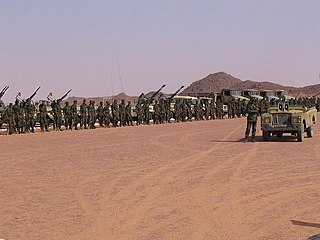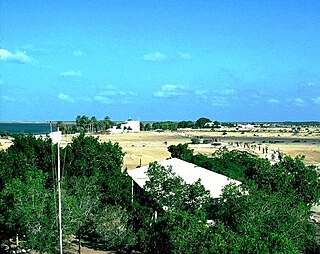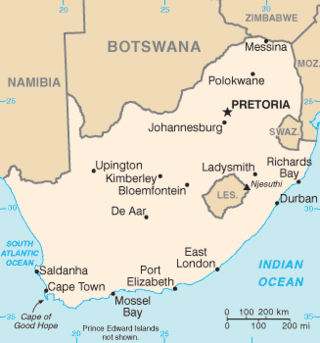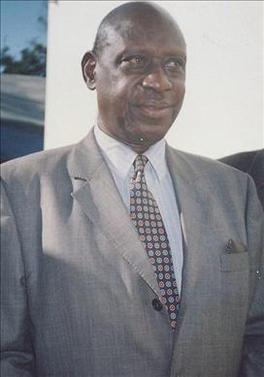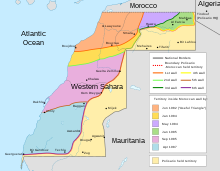
This is a list of published books in English which according to reliable sources deal with the general subject of Western Sahara.
Contents
- Amnesty International – Morocco: breaking the wall of silence: the 'disappeared' of Morocco [1]
- Amnesty International – Morocco: 'disappearances' of people of Western Sahara origin [2]
- Anderson, Jon Lee – Guerillas: The Men and Women Fighting Today's Wars [3]
- Arts, Karin and Pedro Pinto Leita, eds. – International Law and the Question of Western Sahara. Leiden: International Platform of Jurists for East Timor, 2007. [4]
- Barakat, Hakim, ed. – Contemporary North Africa: Issues of Development and Integration [5]
- Bender, Gerald J., James J. Coleman, Richard L. Sklar, eds. – African crisis areas and United States foreign policy [6]
- Briggs, Lloyd Cabot – The Living Races of the Sahara Desert [7]
- Briggs, Lloyd Cabot – The Tribes of the Sahara [8]
- The British Yearbook of International Law (1978) [9]
- Brownlie, Ian – African Boundaries: A Legal and Diplomatic Encyclopedia [10]
- Chaliand, Gerard – The Struggle for Africa [11]
- Chopra, Jarat – Peace-Maintenance. The Evolution of International Political Authority. [12]
- Chopra, Jarat – United Nations determination of the Western Sahara self [13]
- Copson, Raymond W. – Africa's Wars and Prospects for Peace [14]
- Cottrell, Alvin J. & James Daniel Theberge, eds. – The Western Mediterranean [15]
- Damis, John – Conflict in Northwest Africa [16]
- Dean, David J. – The air force role in low-intensity conflict [17]
- El-Ayouty, Yassin, ed. – The OAU after thirty years [18]
- El-Ayouty, Yassin & I. William Zartman, eds. – The OAU after twenty years [19]
- El Ouali, Abdelhamid – Saharan Conflict: Towards Territorial Autonomy as a Right to Democratic Self-Determination. London: Stacey International, 2008. [20]
- Elias, Robert & Jennifer Turpin, eds. – Rethinking peace [21]
- Firebrace, James and Jeremy Harding – Exiles of the Desert [22]
- Furley, Oliver, ed. – Conflict in Africa [23]
- Gallagher, Charles F. – Morocco and Its Neighbours, Part I [24]
- German Yearbook of International Law, Vol. 19 [25]
- Gretton, John – Western Sahara: The Fight for Self-Determination [26]
- Hacene-Djaballah, Belkacem – Conflict in Western Sahara [27]
- Haireche, Abdel-Kader – Conflict, conflict management and cooperation in North Africa [28]
- Harding, Jeremy – The Fate of Africa: Trial by Fire [29] [30]
- Harkavy, Robert E. & Stephanie Newman, eds. – Lessons of Recent Wars in the Third World, Vol. 1 [31]
- Harrell-Bond, Barbara – The Struggle for the Western Sahara Part I [32]
- Harrell-Bond, Barbara – The Struggle for the Western Sahara Part II [33]
- Harrell-Bond, Barbara – The Struggle for the Western Sahara Part III [34]
- Hodges, Tony – Historical dictionary of Western Sahara [35] [36]
- Hodges, Tony – The Western Saharans [37]
- Hodges, Tony – Western Sahara: The Roots of a Desert War [38] [39]
- Houser, George M. – No One Can Stop the Rain [40]
- Human Rights Watch/Middle East – Keeping It Secret [41]
- Jensen, Erik – Western Sahara: Lines in the Sand. Boulder: Lynne Rienner Publishers, 2005. [42]
- Kamil, Leo – Fueling the Fire [43]
- Keegan, John & Andrew Wheatcroft – Zones of conflict [23]
- Lawless, Richard & Laila Manahan, eds. – War and refugees [44] [45] [46]
- Layachi, Azzedino – Images of foreign policy [47]
- Layachi, Azzedino – The United States and North Africa [48]
- Legum, Colin, ed. – Africa Contemporary Record: Survey and Documents, Vol. I [49]
- Legum, Colin, ed. – Africa Contemporary Record: Survey and Documents, Vol. II [49]
- Legum, Colin, ed. – Africa Contemporary Record: Survey and Documents, Vol. III [49]
- Legum, Colin, ed. – Africa Contemporary Record: Survey and Documents, Vol. IV [49]
- Legum, Colin, ed. – Africa Contemporary Record: Survey and Documents, Vol. V [49]
- Legum, Colin, ed. – Africa Contemporary Record: Survey and Documents, Vol. VI [49]
- Legum, Colin, ed. – Africa Contemporary Record: Survey and Documents, Vol. VII [49]
- Legum, Colin, ed. – Africa Contemporary Record: Survey and Documents, Vol. VIII [50] [51]
- Legum, Colin, ed. – Africa Contemporary Record: Survey and Documents, Vol. IX [51] [52]
- Legum, Colin, ed. – Africa Contemporary Record: Survey and Documents, Vol. X [52] [53]
- Legum, Colin, ed. – Africa Contemporary Record: Survey and Documents, Vol. XI [53] [54] [55]
- Legum, Colin, ed. – Africa Contemporary Record: Survey and Documents, Vol. XII [56] [57]
- Legum, Colin, ed. – Africa Contemporary Record: Survey and Documents, Vol. XIII [56] [58]
- Legum, Colin, ed. – Africa Contemporary Record: Survey and Documents, Vol. XIV [58] [59]
- Legum, Colin, ed. – Africa Contemporary Record: Survey and Documents, Vol. XV [60] [61]
- Legum, Colin, ed. – Africa Contemporary Record: Survey and Documents, Vol. XVI [58] [60] [61]
- Legum, Colin, ed. – Africa Contemporary Record: Survey and Documents, Vol. XVII [61] [62] [63]
- Legum, Colin, ed. – Africa Contemporary Record: Survey and Documents, Vol. XVIII [62] [63] [64]
- Legum, Colin, ed. – Africa Contemporary Record: Survey and Documents, Vol. XIX [64] [65]
- Legum, Colin, ed. – Africa Contemporary Record: Survey and Documents, Vol. XX [64] [65]
- Legum, Colin, ed. – Africa Contemporary Record: Survey and Documents, Vol. XXI [66] [67]
- Lippert, Anne – The Saharawi Refugees [68]
- Lodwick, John – The Forbidden Coast [69]
- Markovitz, Irving Leonard, ed. – Studies of power and class in Africa [70]
- Mercker, John – The Sahrawis of Western Sahara [71]
- Mercker, John – Spanish Sahara [72]
- Nelson, Harold D. – Morocco: A Country Study [73] [74]
- Neuberger, Benyamin – National self-determination in post-colonial Africa [75]
- Norris, H. T. – The Arab Conquest of the Western Sahara [76] [77]
- Olsson, Claes, ed. – The Western Sarhara Conflict: The Role of Natural Resources in Decolonization. Uppsala, Sweden: Nordiska Afrikainstitutet, 2006. [78]
- Palin, Michael with Basil Pao – Sahara. Thomas Dunne Bks: St. Martin's, 2003. ISBN 0-312-30541-9. [79]
- Parker, Richard B. – North Africa: regional tensions and strategic concerns [80]
- Partingdon, David H., ed. – The Middle East Annual: Issues and Events, Vol. 2, 1982 [81]
- Pazzanita, Anthony G. & Tony Hodges – A historical dictionary of Western Sahara [82]
- Pazzanita, Anthony G. – Western Sahara. Oxford: ABC-Clio Press, 2005, ISBN 1-85109-256-0. [83] [84] [85]
- Pazzanita, Anthony G. and Tony Hodges – Historical dictionary of Western Sahara, 2nd ed. [86]
- Pickart, George A. – The Western Sahara [87]
- Price, David Lynn – Conflict in the Maghreb: the Western Sahara [88]
- Price, David Lynn – Morocco and the Sahara [88]
- Price, David Lynn – The Western Sahara [88]
- Rezette, Robert – The Western Sahara and the Frontiers of Morocco [89]
- Rivkin, Benjamin – The Western Sahara: towards a referendum [90]
- Rothschild, David & Naomi Chazan, eds. – The Precarious Balance [91]
- Rubinstein, Alvin Z. – Moscow's third world strategy [92]
- Saxena, Suresh Chandra – The Liberation War in Western Sahara [93]
- Saxena, Suresh Chandra – Self-determination in Western Sahara [94]
- Saxena, Suresh Chandra – Western Sahara: No Alternative to Armed Struggle. [95]
- Shelley, Toby – Endgame in the Western Sahara: What Future for Africa's Last Colony? London and New York: Zed Books, 2004. [42] [96] [97] [98] [99] [100] [101]
- Sipe, Lynn F. – Western Sahara: a comprehensive bibliography [102]
- Sixth Congress of the Polisario Front [70]
- Somerville, Keith – Foreign military intervention in Africa [103]
- Spenler, Chris – The Maghreb in the 1990s [104]
- Strategic Survey, 1979, London: International Institute for Strategic Studies [105]
- Strategic Survey, 1982–1983, London: International Institute for Strategic Studies [106]
- Strategic Survey, 1983–1984, London: International Institute for Strategic Studies [37]
- Strategic Survey, 1988–1989, London: International Institute for Strategic Studies [105]
- Thompson, Virginia & Richard Adloff – The Western Saharans [107]
- Trout, Frank E. – Morocco's Saharan Frontiers [108]
- United Nations General Assembly Official Records – Report of the United Nations Visiting Mission to Spanish Sahara, 1975
- United Nations Yearbook, 1975 [109]
- United Nations Yearbook, 1976 [110]
- United Nations Yearbook, 1977 [110]
- United Nations Yearbook, 1978 [110]
- United Nations Yearbook, 1979 [111]
- United Nations Yearbook, 1980 [111]
- United Nations Yearbook, 1981 [111]
- United Nations Yearbook, 1982 [111]
- United Nations Yearbook, 1983 [112]
- United Nations Yearbook, 1984 [112]
- United Nations Yearbook, 1985 [112]
- United Nations Yearbook, 1986 [113]
- United Nations Yearbook, 1987 [114]
- United Nations Yearbook, 1988 [115]
- United Nations Yearbook, 1991 [116]
- United Nations Yearbook, 1992 [117]
- United Nations Yearbook, 1993 [118]
- United States State Department – Spanish Sahara: Background Notes [119]
- Vieuchange, Michel; Vieuchange, Jean (editor). – Smara: The Forbidden City [120]
- War and Peace. Marshall Cavendish Illustrated Encyclopedia of Postwar Conflict, vol. X [121]
- Ware, Lewis B. – Decolonization and the Global Alliance in the Arab Maghrib [122]
- Waring, Mowton L. – Spanish Sahara, focus of contention [122]
- Weexsteen, Raoul, et al. – The Struggle for Sahara [123]
- The World in Conflict 1990, London: Brassey's UK/Maxwell Pergamon [124]
- Wright, Stephen & Janice N. Brownfoot, eds. – Africa in world politics [125]
- Zartman, I. William – The political economy of Morocco [126] [127]
- Zartman, I. William – Ripe for resolution [128]
- Zoubir, Yahia H. & Daniel Volman, eds. – International dimensions of the Western Sahara conflict [129] [130]


